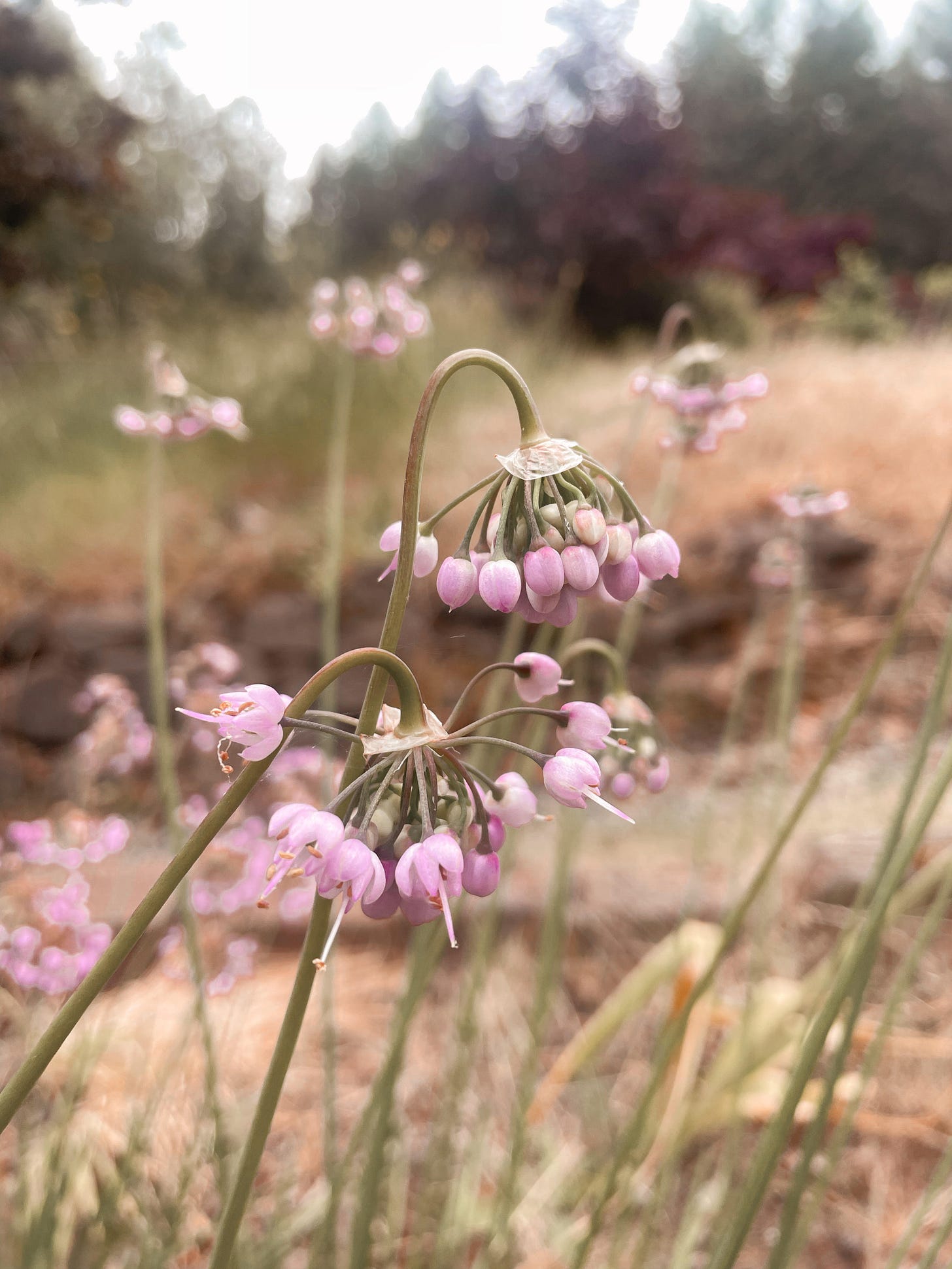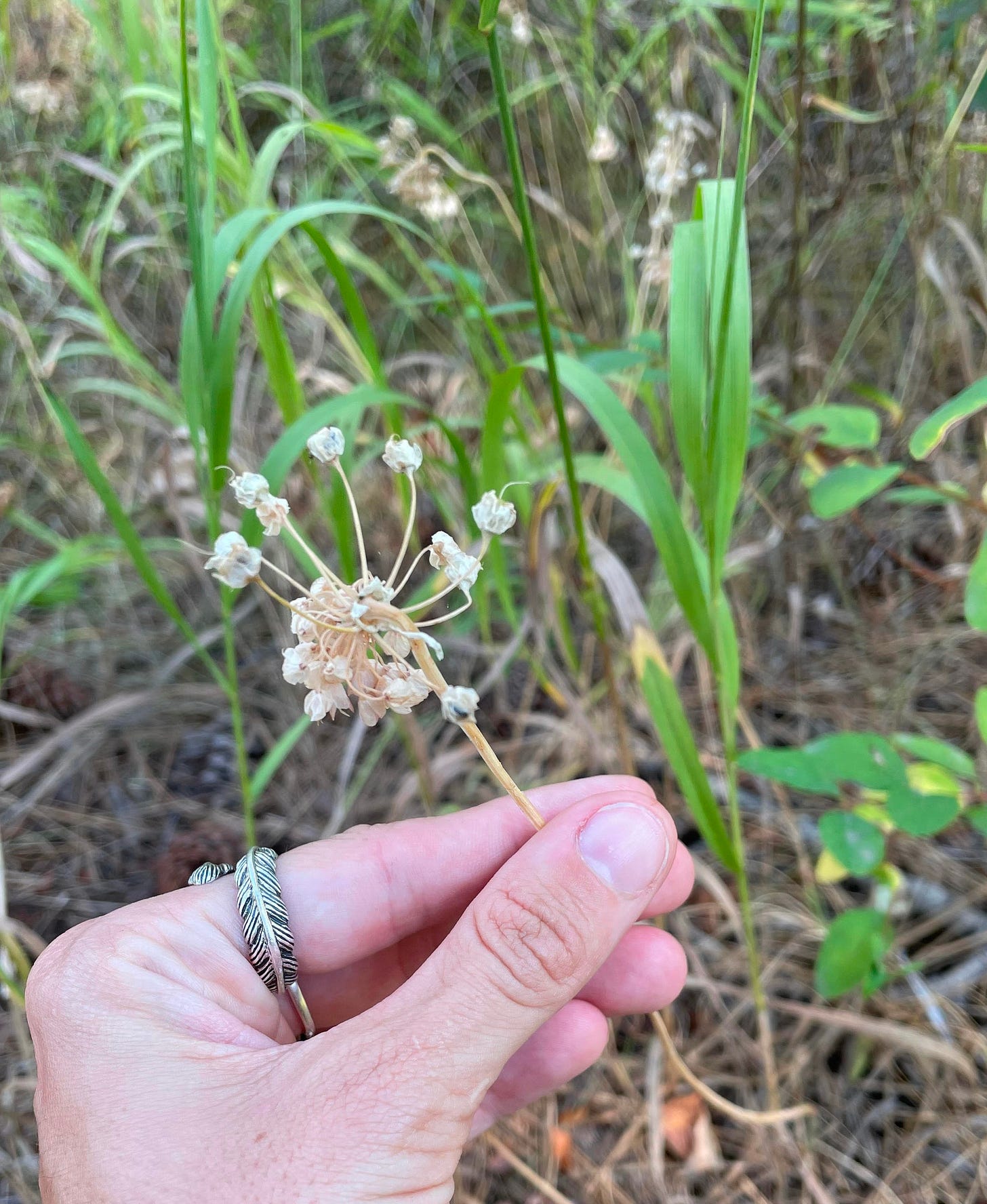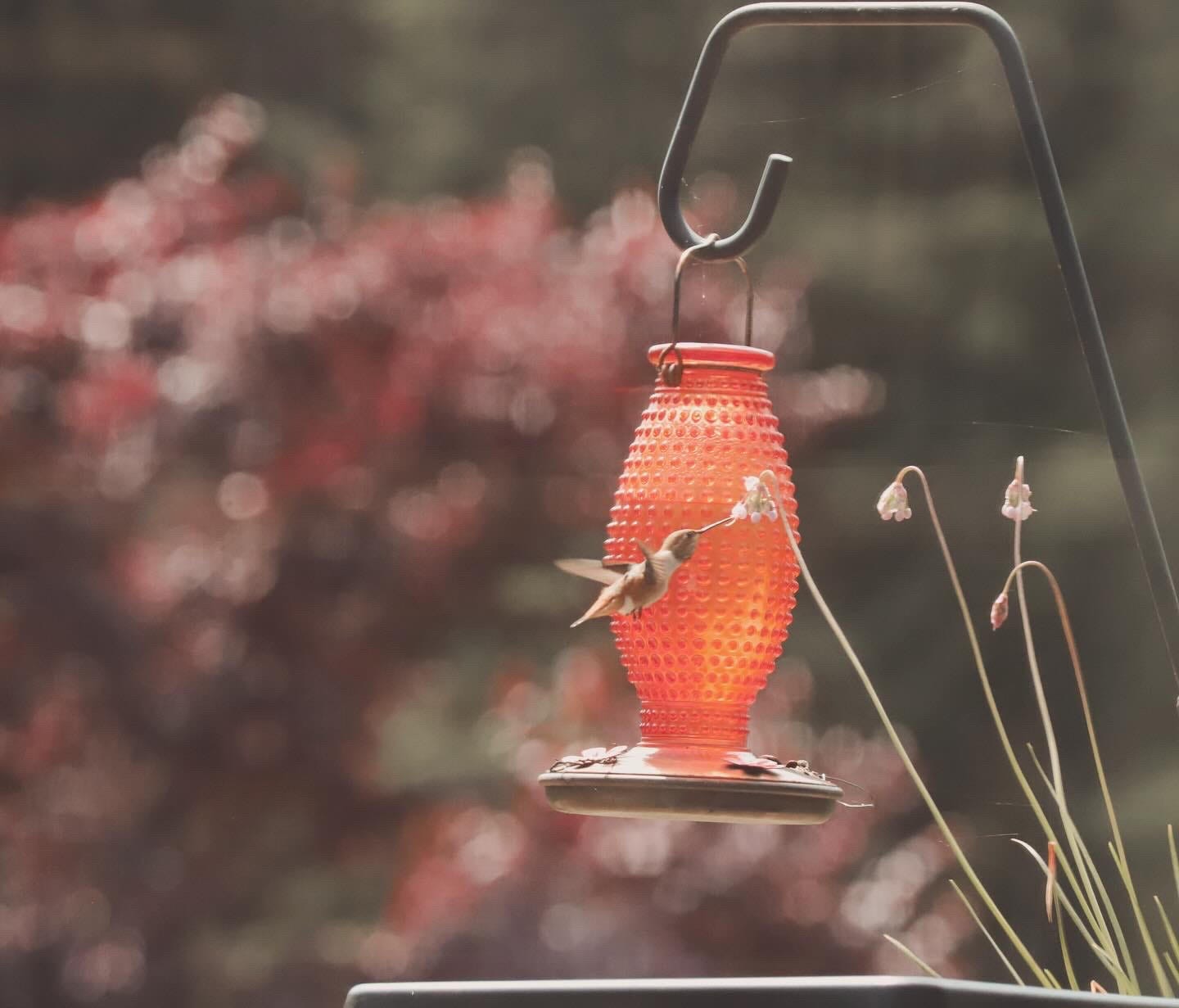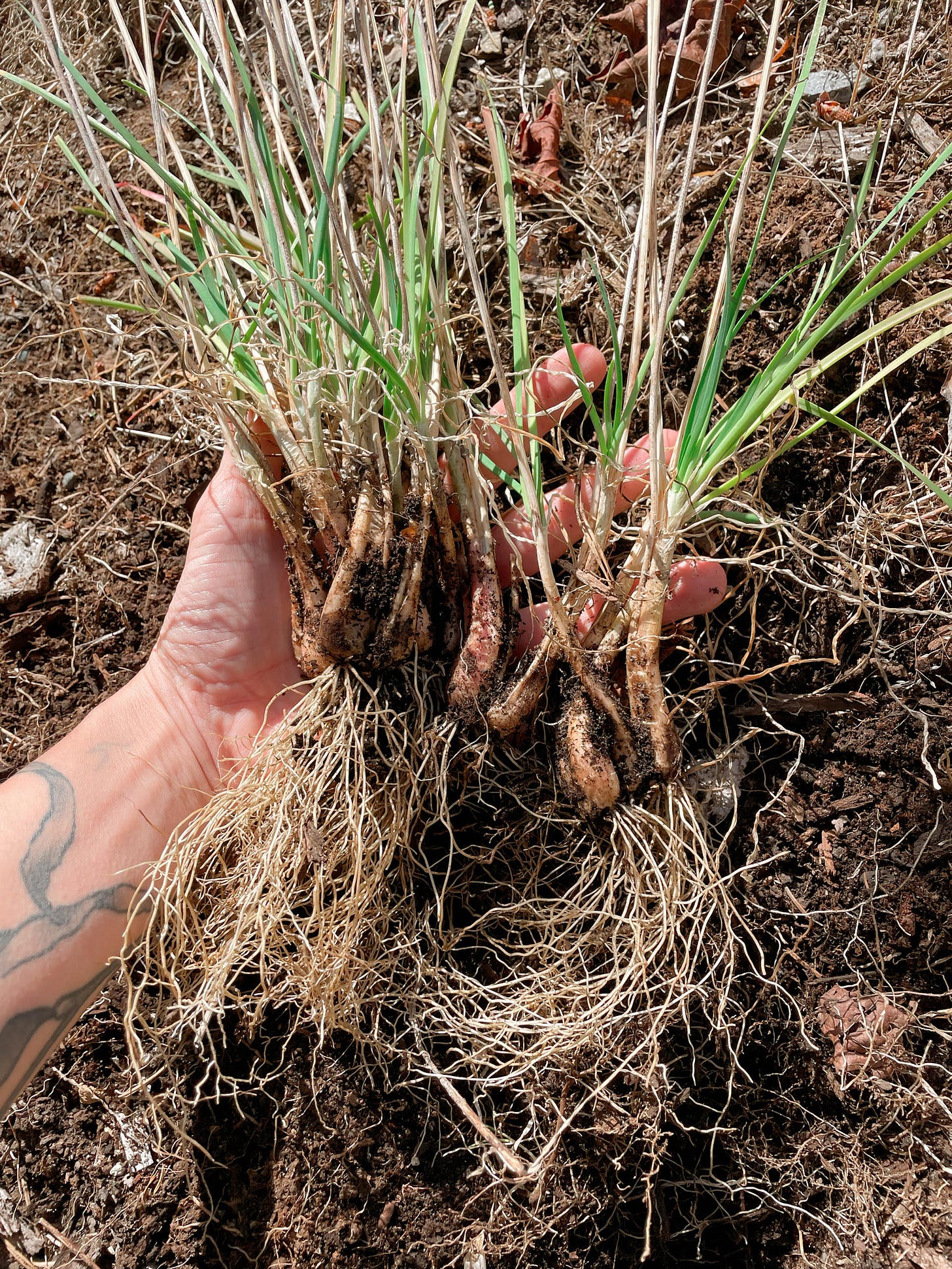A dear friend called me the “incumbent onion witch of the San Juan Islands” the other day and I felt incredibly seen. The following explains why.
I have not been able to find a definitive Anishinaabemowin/ Ojibwemowin/ Ojibwe name for wild onions, specifically the nodding1 onion Allium cernuum. However, this morning while transferring my home crop into buckets for relocation, I had the epiphany that there was no such thing as a non-wild onion before colonization, so zhigaagawanzh must be the right name. If anyone knows of more specific names to refer to onion types, I would be oh so grateful for the knowledge.
Three years ago, when I moved into my current house, I was delighted to find a nursery close by that primarily carries native plants to Turtle Island, called Woodbrook Native Plant Nursery. On my first visit there, I bought two nodding onion plants, and since then I have looked after them, collecting their seeds in the fall, and now I am almost drowning in nodding onions. The opposite of a dilemma. The butter compartment in my fridge acts as a seed storage vault, holding jars filled with each year’s abundance. If you would like me to send you some, please let me know!
These plant relatives have been integral in reacquainting myself with gardening, wild foods cultivation, and my reconnecting journey with Ojibwe culture. Because of these easily collected seeds, I started to save seeds that I harvested myself for the first time. If it wasn’t for my close care of these zhigaagawanzhiig, I wouldn’t have been able to recognize their relatives in the ground as I walked through Council Grove in MT last summer, from which I collected some seeds as well. To learn more about the extraordinary place that is Council Grove, please see this post by the literary great that is Chris La Tray.
They have also taught me a good bit about my personal lifelong fights with anxiety and depression. Every fall I watch as their green turns to a desiccated brown with the changing of the seasons, pulling their energy back towards the bulb to survive the winter. At a glance, it looks like the sad remains of a dead plant, but underneath the soil, they are hunkered down and full of life. I hold my breath every spring as I wait to see if they have survived, the eternal pessimist in me sure that I somehow failed them. Year after year, that pessimist is knocked down a peg as the inevitable green shoots break through the soil. This renewal that follows the cold dark days of winter has given me a whole new appreciation for spring. I too feel that I start to come back to life with the warming of the air and return of sunlight. Even when my brain tells me that all is hopeless, there always comes the day when I am yet again proven wrong, and I start to dream once more.
This summer, I watched humminbirds or nenookaasiwag drinking nectar from the crop of onions I house on the balcony next to the hummingbird feeders. Observing them choose to drink this nectar instead of the sugar water they have been habituated to drink reaffirmed my passion for cultivating native plants.
I do not do it for my own enjoyment of the foods, I haven’t even tried a single nodding onion save for some greens chopped for garnish. I do it in an attempt to diminish, even minutely, the harm that has been done on the ecosystems of Turtle Island. I do it for the native pollinators that have been so greatly reduced. I do it for the next generations who may find a nodding onion or camas patch in the outdoors once more, unlike my generation which has scarce opportunities to find ancestral foods around us. I do it for the small relatives who may survive a harsh winter because of the few seeds dropped from my garden.
There are some big changes about to unfold in my life, which will hopefully allow me a bit more mental space and energy to channel into this realm of thought. I want to make our ancestral foods more accessible to relatives, especially within our Little Shell community. My distance from our community2 does make this dream a bit far fetched, but hopefully something shakes out. As Little Shell builds up resources following federal recognition, there is still a huge disconnect, especially with regards to cultural practices. Food sovereignty is becoming increasingly of importance to me, and I plan to contribute however I can.
If you have made it this far, thank you for reading! It has taken me a while to figure out just what I want to say on here, and I’m sure it will continuously evolve, but thanks for coming along for the ride.
Chi miigwech (Thanks a bunch)
Tess
Named for their light pink/ purple flowers which heavily hang down in a nodding fashion
Western Washington is a good deal away from Great Falls, Montana









I love this and especially love to see you writing here.